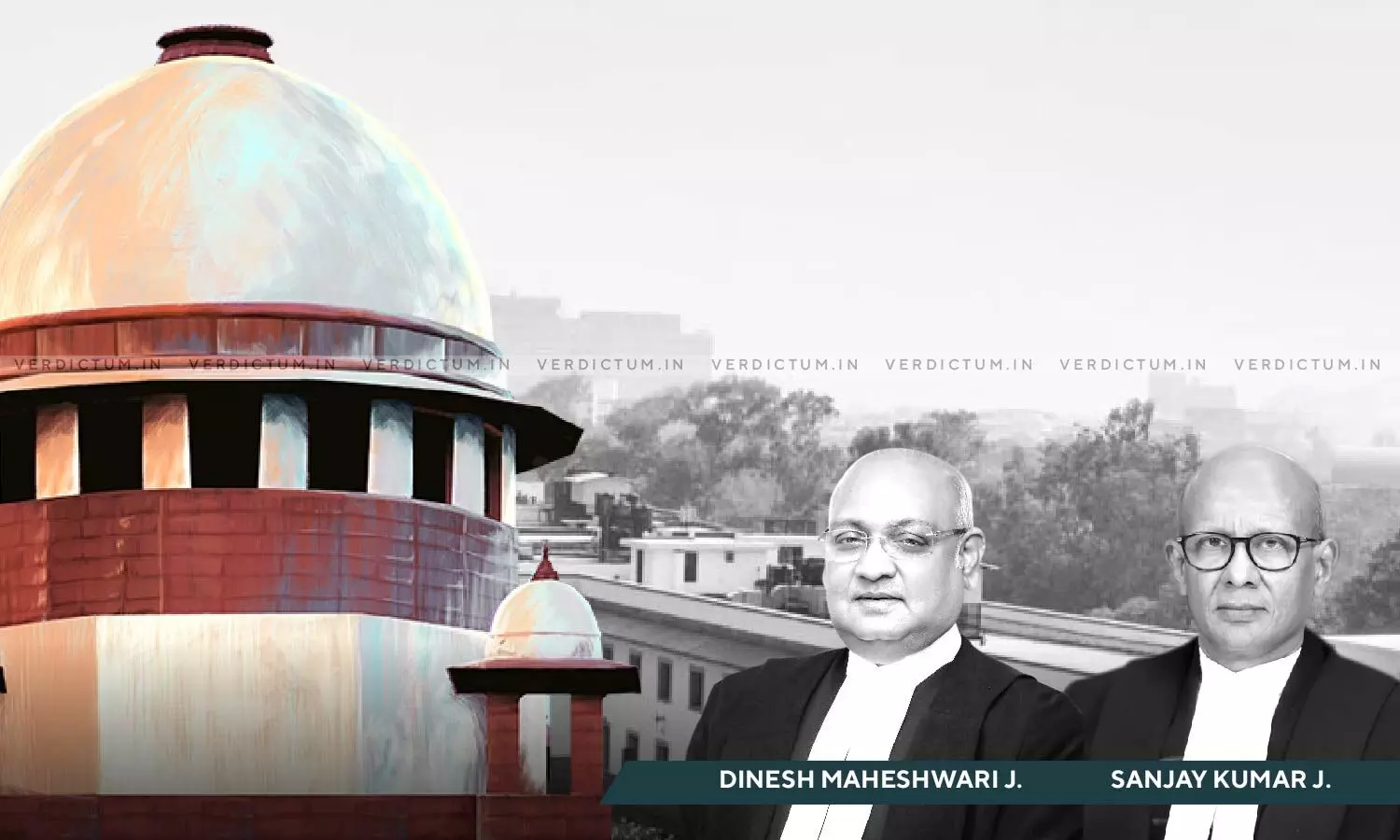
Trivial Defects In Investigation Not Enough To Disbelieve Prosecution’s Case, Acquittal Based On Defective Probe Insults Injury: SC
 |
|The Supreme Court has recently observed that the trivial defects in investigation or process are not enough in themselves to disbelieve the prosecution’s case and that an acquittal of the accused solely on a ground of defective investigation would add an insult to the injury.
The two-Judge Bench comprising Justice Dinesh Maheshwari and Justice Sanjay Kumar held, “In any event, as already noted hereinbefore, this Court would not undertake a roving inquiry on factual issues or reappreciate the evidence, unless it is brought out that there is some perversity in appreciation of evidence by the Trial Court or the High Court, leading to manifest miscarriage of justice. Trivial defects in investigation or process are not enough, in themselves, to disbelieve the prosecution’s case. To acquit solely on the ground of defective investigation would be adding insult to injury.”
The Bench noted that the properties to be identified should be mixed with similar articles and the witnesses should be asked to identify the same.
“This being the procedure that was followed in the case on hand, there is no reason to doubt PW-1’s identification of the seized gold ornaments as those taken from his shop”, further said the Court.
Senior Advocate R. Basant appeared on behalf of the appellants/accused while Advocates Mahfooz Ahsan Nazki and Y. Raja Gopala Rao appeared for the respondents i.e., State and complainant respectively.
In this case, the appellants were accused of a robbery of gold ornaments weighing about 3.543 kgs and cash amounting to Rs. 18,340/-. The Additional District and Sessions Judge, Sompeta, held the accused guilty of offences punishable under Sections 302, 397, and 450 of the IPC and sentenced them accordingly.
Their conviction and sentence stood confirmed when the Telangana High Court and Andhra Pradesh High Court dismissed the appeal filed by the two accused, vide judgment in the year 2018. Being aggrieved with the same, both the accused were before the Apex Court.
The Supreme Court in view of the facts and circumstances of the case asserted, “Insofar as this fingerprint evidence is concerned, we find that the same was liable to be eschewed from consideration as the accused were already in custody by the time the so-called chance fingerprints were lifted from the scene of the offence. More importantly, the prescribed procedure was not followed in gathering this so-called evidence. No report was drawn up at the time of lifting of these chance prints in the presence of credible witnesses. Similarly, no report was prepared even at the time the specimen fingerprints of the accused were taken.”
The Court further asserted that there are some discrepancies and contradictions in the prosecution’s case and that there is no clarity as to the sequence of events at the scene of offence and that the witnesses gave differing versions of the time of the arrival of the police and as to what they saw and spoke.
“No doubt, recovery of this stolen property from the accused would not be sufficient in itself to convict them for murder. However, the weight of the evidence on record, taken cumulatively, unerringly points to the guilt of the accused, leaving no room for second thoughts”, said the Court.
The Court found no patent illegality or manifest injustice being committed by the Trial Court or the High Court, warranting the exercise of discretionary jurisdiction under Article 136 of the Constitution.
“Given the totality of the case, which demonstrates that the sequence of events unfolded in quick succession during the intervening night of 21.08.2008 and 22.08.2008, leading to not only identification of the accused by the witnesses present but also their apprehension and arrest, apart from seizure of the stolen gold ornaments and cash from their possession, it is amply clear that there was no time or possibility for the police to hoist a false case upon them. Minor discrepancies and shortcomings in the statements made by witnesses after passage of a few years would necessarily have to be discounted in such a scenario”, observed the Court.
Accordingly, the Apex Court dismissed the appeal.
Cause Title- Dakkata Balaram Reddy & Anr. v. State of Andhra Pradesh & Anr.